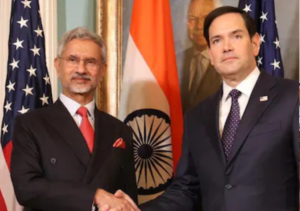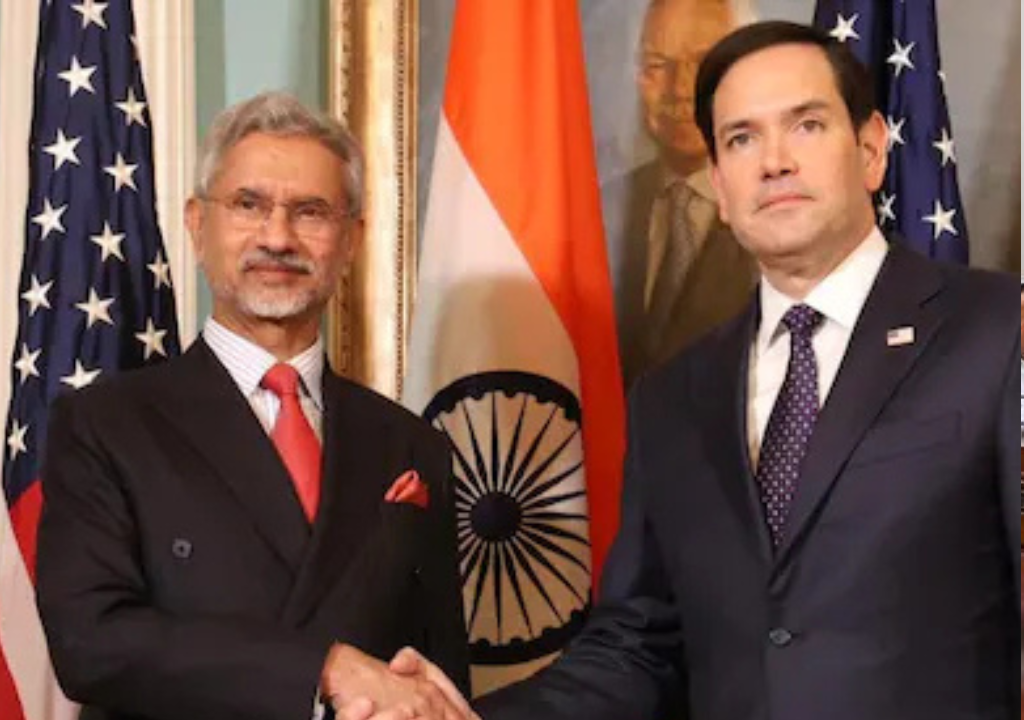After the Pahalgam terror attack, EAM S Jaishankar told US Secretary of State Marco Rubio that the perpetrators, backers, and planners must be brought to justice. In their latest diplomatic engagement, Jaishankar conveyed India’s firm stand on terrorism, stating that accountability must extend beyond the attackers to those enabling such acts. The call comes amid heightened tensions between India and Pakistan following the massacre of 26 civilians in Jammu and Kashmir’s Pahalgam. While the US reiterated its support for counterterrorism cooperation, it also urged both countries to de-escalate and maintain regional stability.
What Jaishankar Posted After the Call
Taking to social media, S. Jaishankar posted on X (formerly Twitter):
“Discussed the Pahalgam terrorist attack with US @SecRubio yesterday. Its perpetrators, backers and planners must be brought to justice.”
This concise but powerful message reflects India’s strong stance in holding not just the gunmen, but their ideological and financial sponsors accountable. The post quickly gained traction online, with policymakers and analysts interpreting it as a clear diplomatic signal to the United States and other Western allies about India’s expectations of solidarity and action.
Rubio’s Response: Condolences and Call for Peace
During the call, Secretary Marco Rubio expressed deep sorrow over the Pahalgam incident and offered condolences to the victims’ families. According to US State Department spokesperson Tammy Bruce, Rubio reaffirmed America’s commitment to combating terrorism in cooperation with India.
At the same time, Rubio encouraged both India and Pakistan to avoid further escalation and pursue diplomatic avenues to ensure peace and stability in the South Asian region.
“The Secretary expects to speak with the foreign ministers of both India and Pakistan to de-escalate tensions,” Bruce noted during a press briefing.
Rubio is also reportedly engaging with leaders from other allied nations to coordinate a multilateral response to the evolving situation.
India’s Diplomatic and Military Response So Far
India has taken several decisive measures following the April 22 Pahalgam terror attack, many of which signal a firm yet calibrated escalation:
- Suspension of the Indus Waters Treaty with Pakistan.
- Closure of the Attari Integrated Check Post, halting civilian and trade crossings.
- Reduction of diplomatic staff in both High Commissions to 30 members each.
- Visa cancellations for all Pakistani nationals.
- Granting the Indian Armed Forces full operational freedom to determine the nature, timing, and scale of India’s response.
The Cabinet Committee on Security (CCS) met soon after the attack and observed that it followed a period of successful local elections in Jammu and Kashmir — suggesting a deliberate attempt to disrupt democratic progress.

Pakistan’s Continued Ceasefire Violations
Despite international calls for restraint, Pakistan has engaged in continuous ceasefire violations along the Line of Control (LoC).
On the night of April 30–May 1, Pakistani troops opened unprovoked small-arms fire across the LoC in sectors like Kupwara, Uri, and Akhnoor. The Indian Army responded proportionately, marking the seventh consecutive night of border firing.
Similar instances were reported between April 26–27, particularly near the Tutmari Gali and Rampur sectors, where Indian forces again responded effectively.
These provocations come after Islamabad publicly claimed that India was preparing for a military strike within 24–36 hours — a statement widely interpreted as an attempt to internationalize the issue and pre-emptively shift blame.
Links Suggested: India-China Trade War: Can India Adopt Trump’s Economic Playbook?
Security Forces Ramp Up Counter-Terror Operations
In parallel to diplomatic moves, Indian security forces have intensified operations in the Kashmir Valley.
Anti-terror missions have been launched across known infiltration routes and sleeper cell networks are under close surveillance. According to senior defence officials:
- New intelligence points to involvement of Pakistan-based handlers,
- Ground teams are executing targeted operations to intercept collaborators,
- Local police are working in coordination with the National Investigation Agency (NIA).
The Indian Army’s posture has shifted toward prevention and punishment, with the goal of avoiding another high-casualty civilian attack.
Conclusion
The conversation between S Jaishankar and Marco Rubio marks a critical step in India’s international outreach following the Pahalgam terror attack. By urging the backers and planners of the attack to be held accountable, India is drawing red lines — not just for the perpetrators, but for the nations that support them.
As the United States continues to walk a tightrope between diplomacy and deterrence, India’s clear message is that justice and accountability must take precedence over appeasement. With both armies on alert, the next few days will reveal whether global diplomacy can match the intensity of ground-level realities in South Asia.

